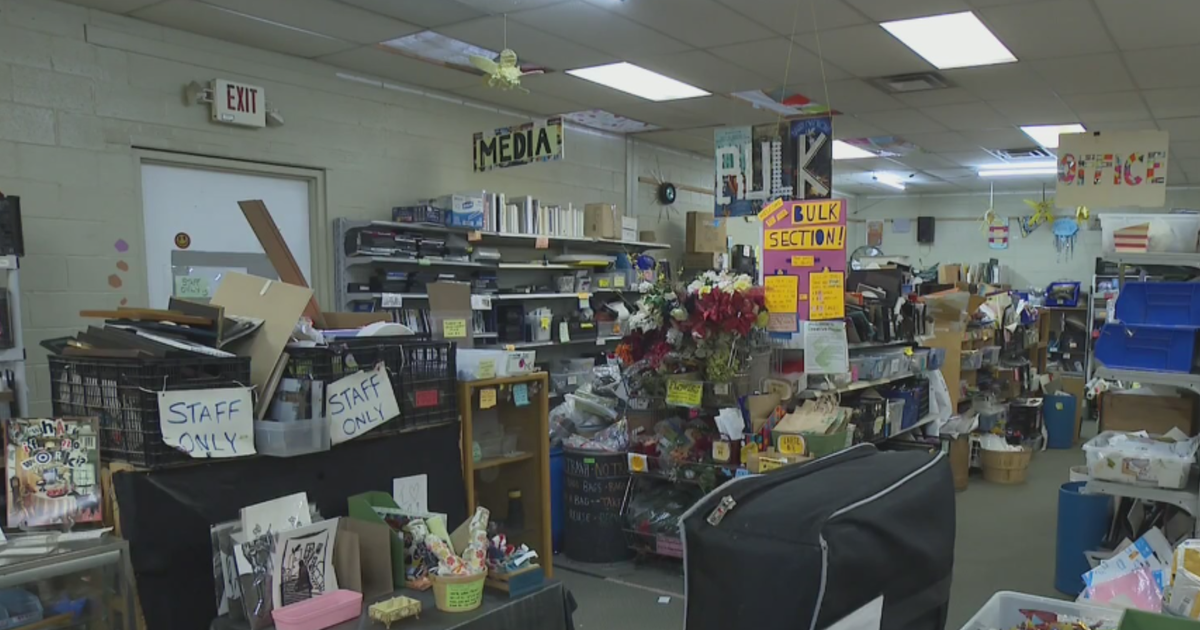Local Artist Spotlight: Ian Page
By Daniel McCloskey
I live in a writers' co-op called the Cyberpunk Apocalypse, so I do a lot of thinking about how we live in an information age similar to those described by William Gibson and other 80's science fiction writers. Ian Page, it would seem, thinks about it a great deal more. Ian has created art across the world. He's spent time in Europe, Latin America, the Arctic, and yes Pittsburgh. Here in Pittsburgh he seems to be best known for his work with the Darker Scratcher Amateur Surgery Show, a sci-fi variety show that mixes the weird and absurd with the factual.
"I tend to want to represent information addiction over and over again," said Ian. "I was thinking about the Darker Scratcher show and how it's an experience very much like information addiction for me. It feels like surfing the Internet--it's like having five different windows open. There's one about bio diversity in a swamp in Florida. Another's about what DARPA is doing. Another is just your chat with your friends about birds. I think that's a really valuable experience or a really good reason to have people be together--just to be excited about information."
I met with Ian in a local coffee shop. He moved his laptop to the side when I arrived, but didn't close it. Ian is obsessed with information and the information age. It comes through in his art, his website (ianpage.net), and arguably even his dress (he was wearing baseball hat with a silver pineapple fastened to the brim (just extra data to filter through).
"Something I've been thinking a lot about is what my feelings are about being genuine," he said. "I think that being genuine in what you do is one of the strangest approaches, and it ends up being really sappy to me … You can't portray anything like innocence anymore without at least admitting that you're doing a portrayal and that it's going to be a lie in some ways."
You could draw a connection to pop art philosophy in Ian's thinking. Andy Warhol said, "once you see emotions from a certain angle you can never think of them as real again." But, if pop art talks about emotion being permanently cheapened by the knowledge that it's all been done, Ian seems to think that that just adds another layer.
"I think we're in a quadruple bluff culture at this point. You have to lie a series of times in order to simulate something that was once called a genuine experience. That's how I've been feeling lately. And I don't feel negatively about that. I don't think that's a cynical point of view or that's going to breed cynicism. I just think as information builds up in complexity there's more gates to pass through in order to understand it, or in order to even be able to assimilate it or manipulate it."
I asked Ian if that meant you need to have a certain level of suspended disbelief to experience anything. "Yeah," he said. "It's the same process your brain goes through in perceptual filtering."
His excitement about information isn't just about collecting it, he wants it to condense into ideas. His art projects tend to be like experiments, or sometimes they just are experiments. One of his sculptures was an apparatus that he wore on his head for a month. It automatically squirted lemon juice into his mouth every time his phone rang. He wanted to see if he could condition himself to salivate every time he got a call. "I think that one was close enough to call a success. I think if I kept going it would have worked, but in the end I just sort of conditioned myself to be allergic to lemon juice," Ian laughs as he says this. "At the end of the day I want to change the way I think about things. And the motor program of experimentation--of just starting and seeing where it takes you--tends to do that."
Other experimental work he's done includes making noise instruments by passing an electric current through meat and casting molds of his own head. His work with the Miss Rockaway Armada seems to have started as an experiment in boat building and living spaces. "We build rafts together," was how Ian put it. "We have this living situation set up where we were living on a raft, performing on a raft, and you have as much time as you want to do what you want. But we became more of an art collective when museums and places like that started saying, 'Oh here's some money for tools,' and, 'Do what ever you want in this space.' MASS MoCA was the first one. And two years ago we went to Eindhoven, the Netherlands. [Last year] the Philadelphia Arts Alliance wrote a grant on our behalf which was very generous of them."
The cooperative built a floating environment on the Schuylkill River that the public could come out and walk around in. "Imagine ten different rafts. One's a bicycle powered Ferris wheel. One's a dinner boat where the bottom of the table is cut out so you sit with your feet in the water. One was a sound-making environment where everywhere you walk is amplified and sort of feedbacks on its self. There was a lemonade stand, a gigantic swing set … it kind of had the vibe of a carnival but less goofy."
As he described the raft project I couldn't help but be reminded of the Darker Scratcher format, and the five Internet windows being open all at once. Here are ten rafts, all different, jumbled together--but Ian would be quick to remind me that he was only a small part of a group for this project. Besides, when he is on tour doing performances he tends to just get up and say what he thinks.
"I've gotten some criticism about that," Ian says. "[People say,] 'Well you're just kind of saying what you think.' Well yeah, that's the point. If everyone sort of stood up and said what they thought, we'd all have a good time."
After the interview, I walked outside, past the ads, and a hundred conversations that line every street. I thought about the dark depiction of information addiction that appeared in cyberpunk films like Johnny Mnemonic in comparison to the chipper enthusiasm with which Ian Page seems to see the world.
I walked through the radio waves that were transmitting a million more conversations, and more advertisements, and news, and interviews, and TV shows every minute of every day. The sun was out, and I knew that the sun was ball of burning matter, and that people make accurate predictions about the motion of celestial bodies based on equations that indicate mass has the ability to warp spacetime, causing gravity--which is a force that travels at exactly the speed of light so if the sun exploded we would see it happen at the same time the tides went crazy and earth hurdled out of orbit. And I knew that when people drew the sun with a face it was almost always smiling. And I knew that when people draw a full moon it tends to smile, but when they draw a crescent it might not. And it was easy to see the beauty in a world addicted to information. In a world jonesing for a complicated understanding, and new ideas--in a future where we all thought a little more like Ian Page.



